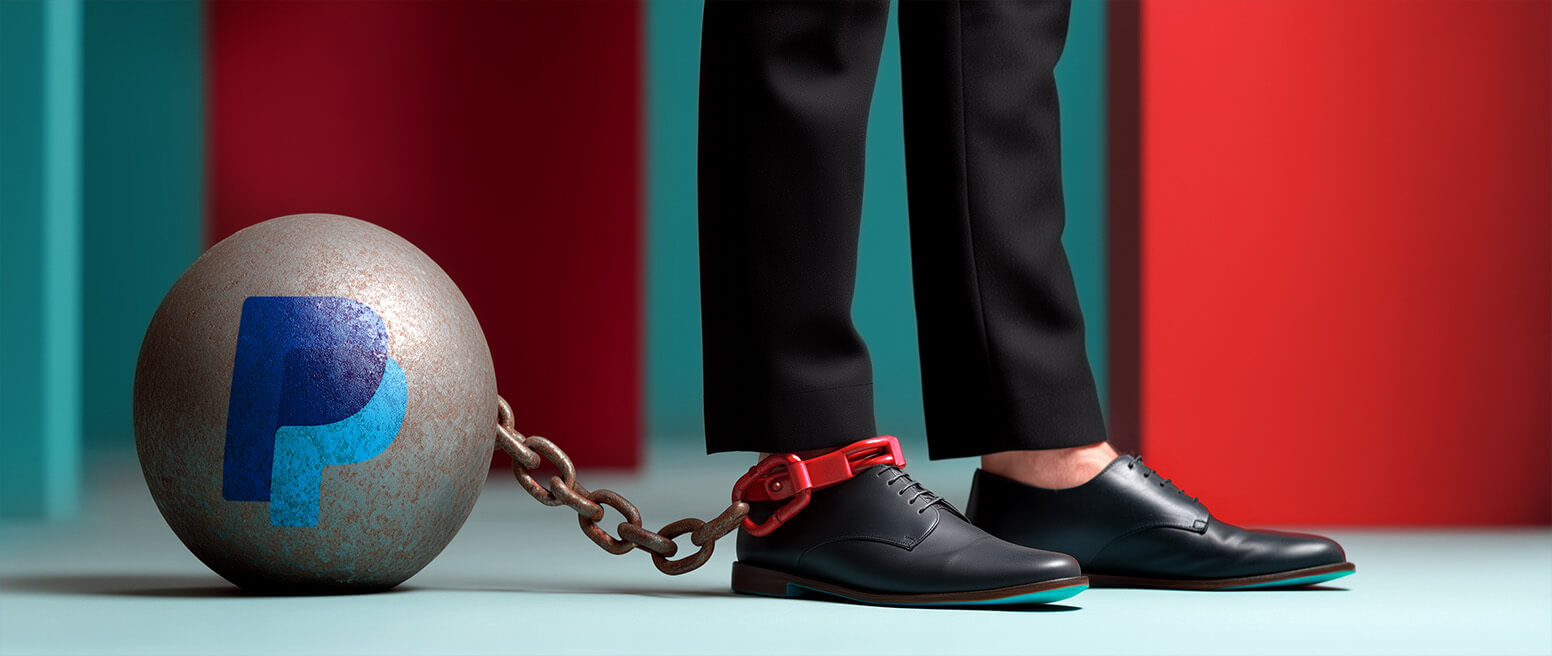PayPal Fraud Protection & Prevention Tips for Sellers & Buyers
For consumers, making online payments through PayPal offers convenience and safety, plus access to additional services such as money transfers and check cashing. Merchants benefit from all-in-one services and reasonable usage fees, along with the consumer confidence that comes from a trusted brand recognized worldwide.
But, with billions of PayPal transactions taking place every year, the company is a prime target for fraudsters and scammers. PayPal has implemented multiple fraud protection programs to address this issue. The question: do they work?
This post will look at PayPal fraud prevention programs for both consumers and merchants. We’ll see how they function, what they cover, and additional steps users can take to make PayPal even safer.
Recommended reading
- PayPal Chargeback Time Limits: 2025 Rules & Timelines
- PayPal Account Limitations? Here are 5 Ways to Respond.
- PayPal Refund Scams: How They Work & How to Stop Them
- PayPal Scam Emails: How They Work | How to Identify & Avoid
- PayPal Dispute Fees: How PayPal Chargeback Fees Work
- The Top 12 PayPal Scams to Watch for in 2025
Understanding PayPal Fraud
PayPal does everything in its power to prevent fraud from happening. Neither buyers nor sellers have direct access to the other party’s financial information, and all data is heavily encrypted.
Using state-of-the-art technology and fraud models, PayPal engages in 24/7 transaction monitoring through its own customer verification process. Agents check for fraud “red flags” in near real-time, alerting customers of any suspicious activity.
But, thorough as the process is…crooks don’t give up easily.
PayPal account credentials can be more lucrative than credit cards. Not only can thieves steal a user’s available balance, they can often transfer money from any payment source connected to the PayPal account.
Hackers typically obtain cardholder information through malware campaigns or dark web purchases. They might also get account credentials through a phishing attack; the attacker sends an email designed to look like it’s coming from PayPal. However, it’s only a fraudster attempting to trick the recipient into giving up their personal information.
This becomes a problem for merchants, too. Excessive fraud can lead to cardholders distrusting the platform. Costs increase over time, while cardholders are less comfortable making purchases.
PayPal Fraud Protection for Buyers
Fraud doesn’t only come from criminals. Sometimes customers believe they have been victims of deceptive seller practices...which is entirely possible.
If a buyer suspects fraud, PayPal recommends they first talk to the seller directly. In many cases, the issue is the result of a misunderstanding and can easily be resolved. If not…well, that’s why PayPal established the free Purchase Protection program to help defend buyers and increase consumer confidence in their service.
PayPal Purchase Protection
If a fraudster makes purchases without the account holder's knowledge, the user won’t have to pay the bogus charges. PayPal Purchase Protection guidelines clearly state that customers “...aren’t liable for unauthorized purchases made from [their] account.”
For eligible purchases, PayPal will refund the cost of their purchase plus the cost of shipping. That said, not every transaction will qualify. Buyer protection is very limited in scope. For example, real estate transactions are a prime category for scams, but PayPal Purchase Protection doesn’t cover real estate transactions.
Learn about PayPal Purchase ProtectionPayPal Resolution
Center
Here's a critical question: if a PayPal user suspects they’ve been the victim of fraud or merchant abuse, how do they actually get their money back?
Buyers can start the process by submitting a claim through the PayPal Resolution Center. This lets the user ask the company to investigate and resolve the case on their behalf.
Learn about the PayPal Resolution CenterPayPal Fraud Protection for Sellers
Of course, consumers aren’t the only ones who need PayPal fraud prevention practices.
As we alluded to above, merchants tend to be the party who really pays the price for fraud. That’s why it’s so important to have PayPal fraud protections in place for sellers, too.
PayPal Seller Protection
The PayPal Seller Protection program helps minimize chargebacks, particularly in cases of friendly fraud. Seller Protection kicks in when an account holder claims they either didn’t authorize payment, or didn’t receive the order.
But, like PayPal Purchase Protection, the coverage is limited. In cases involving physical goods, for example, the protection only applies to orders sold and shipped from within the United States. The seller must also provide proof of delivery.
Learn about PayPal Seller ProtectionPayPal Fraud Protection Advanced
For mid-sized and larger merchants, PayPal has introduced a new service called Fraud Protection Advanced.
This adaptive machine-learning solution dynamically evolves to counter new fraud threats. PayPal has been collecting transaction information from both buyers and sellers for over two decades, and Fraud Protection Advanced leverages that extensive transaction and risk data to provide more robust protection.
Paypal claims Fraud Protection Advanced’s digital fingerprinting and exclusive intelligence is faster and more accurate. It can help recognize and adapt to shifting fraud patterns, lower chargebacks, and produce fewer false declines. But, unlike the other services we have discussed, PayPal Fraud Protection Advanced requires monthly and per-transaction fees.
Even the most sophisticated artificial intelligence is fallible, and may miss red flags of fraud.
Let us show you why.

Are PayPal Fraud Protections Enough?
The short answer: no.
There's no doubt that PayPal has invested time and energy into making its process as safe and secure as possible. Unfortunately, that doesn’t render it foolproof.
According to a report by Signifyd, attacks on US PayPal orders in 2021 were nearly 12 times higher than in 2020. Significantly, more than 82% of these cases involved friendly fraud.
PayPal’s fraud protection services might be enough for buyers. They will typically not be sufficient for merchants, though. For both sides, PayPal offers DIY steps for greater fraud protection.
PayPal Fraud Protection Tips for Buyers
PayPal lists many common scams on its website, such as phishing attempts and malware. Fraudsters are getting more sophisticated, however, and new techniques are increasingly difficult to spot. That said, there are steps buyers can take to avoid scams:
PayPal Fraud Protection Tips for Merchants
PayPal merchants generally have a wider range of scams to look out for than buyers. For instance, sellers should be on the lookout for:
Fraud Protection Tips for Sellers
Fraud management isn't easy. But, with the right practices and policies in place, you can make it a lot easier on yourself:
Increasing Fraud Protection
While trying to protect users is always a good thing, PayPal fraud protection is limited, at best. Both buyers and sellers may find they are still vulnerable.
Especially for merchants, no single fraud-fighting tool can offer 100% protection. True fraud and chargeback protection requires a multi-tiered approach designed to prevent fraud from happening and recover revenue from any chargebacks.
To learn about chargeback management help that goes beyond the minimal assistance offered through PayPal and other processors, talk to Chargebacks911® about a free chargeback analysis today.












